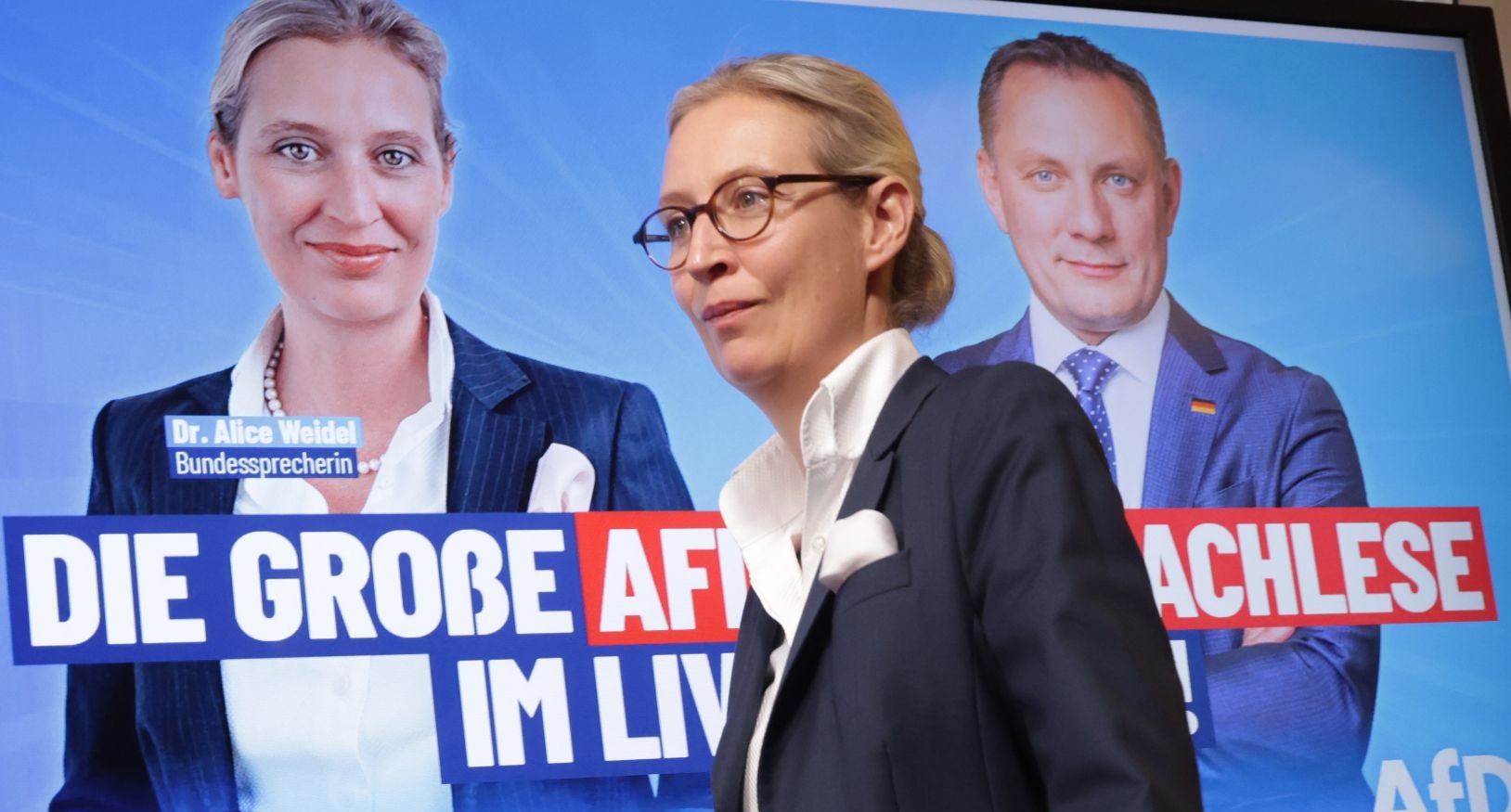European Observatory to Combat Radicalization – EOCR
Germany’s far-right AfD party polls strongly before Brandenburg state election
euronews – Polls predict more success for the far-right AfD party in Brandenburg; weeks ago the party made massive gains in Thuringia and Saxony state elections. A week before state elections in Brandenburg, the state which surrounds the capital Berlin, the far-right Alternative for Germany (AfD) remains the favourite.
Just weeks ago the AfD won a third of the votes in elections in the eastern German states of Saxony and Thuringia. Sunday’s election may be an historic moment: in Brandenburg the ruling Social Democratic Party (SPD) might be ousted from power for the first time since German reunification in 1990.
It means that the might face defeat. A Forschungsgruppe Wahlen poll suggests the SPD has 26% of the vote, while the AfD is ahead with 29%. The Christian Democratic Union (CDU) has 15% – and the Green party might be in danger of being kicked from the German parliament with polls showing they only have 5% of the vote.
In spite of the projected success of AfD in the upcoming elections, the SPD’s regional leader Dietmark Woidke could still continue his coalition of SPD, CDU and the Greens. Woitke has said he will resign from politics if his party does not end up the strongest faction following the elections in an effort to mobilise voters.
Since then, the SPD has gained momentum, although the AfD remains ahead, however it has fewer parties who will consider entering into a coalition with it. The newly founded Sahra Wagenknecht Alliance (BSW) is expected to get 14% of the vote in their debut in the Brandenburg elections.
In recent voting in Thuringia and Saxony, the leftist party also achieved strong results. Migration is the major issue for many voters, who want to see drastic reductions in the amount of migrants let in to Germany.
Germany has grappled for years with the need to attract more skilled workers from outside the European Union. Experts say the country needs about 400,000 skilled immigrants each year as its aging workforce shrinks. On Friday Berlin signed an agreement with Kenya to bring in skilled workers and plug labour market gaps.
“This can help us to compensate for a shortage of skilled workers,” Scholz said of the agreement, adding that Germany is already feeling the impact of such a labour shortage and that it “will be with us for years and decades to come.”
Germany has already signed similar agreements with India, Georgia and Morocco, and will sign one this weekend with Uzbekistan during a visit there by Scholz, according to the German news agency dpa.




